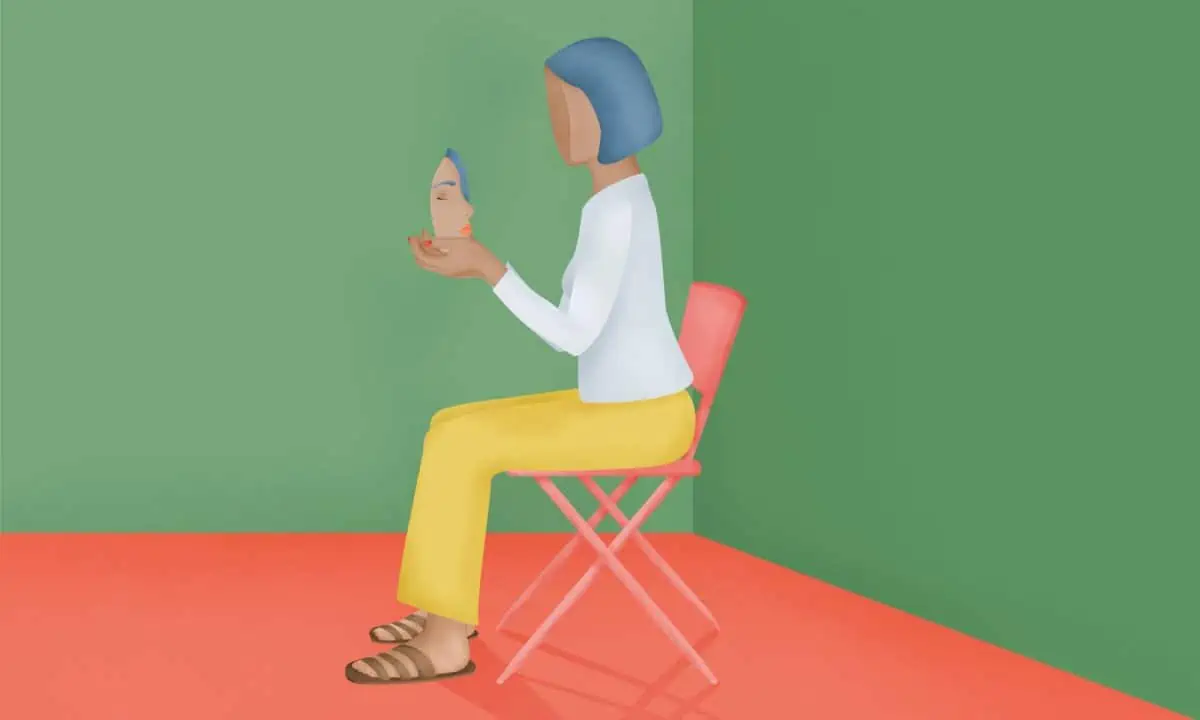It is the time of year again where we indulge our obsession with the past and fascination with the future. Time travel prevails every News Years as we reflect on the year that has passed, and set goals and intentions for the year ahead.
Although mindfulness teaches to stay present above all else- even the most devout yogi can’t fault intentional time to reflect and prioritize.
Introspection questions can guide you on this journey through your inner landscape to answer the ultimate query of who you are and what you want.
Contents
- 1 What Is Introspection?
- 2 Why Is Self-Reflection Important?
- 3 Self-Reflection Questions Are Your Roadmap to The Self
- 4 How To Ask and Answer Self-Reflection Questions
- 5 Examples of Self-Reflection Questions to Ask Yourself
- 5.1 Basic Self-Reflection Questions to Get to Know Yourself
- 5.2 Self-Reflection Questions for Spiritual Health
- 5.3 Self-Reflection Questions for Mental Health
- 5.4 Self-Reflection Questions for Physical Health
- 5.5 Self-Reflection Questions for the Present
- 5.6 Self-Reflection Questions for the Past
- 5.7 Self-Reflection Questions for the Future
- 5.8 Self-Reflection Questions for Relationships
- 5.9 Self-Reflection Questions for Career
- 5.10 Self-Reflection Questions for Personal Growth
- 6 Other Tools for Self-Reflection
- 7 Best Books On Introspection and Self-Reflection
- 8 FAQs
What Is Introspection?
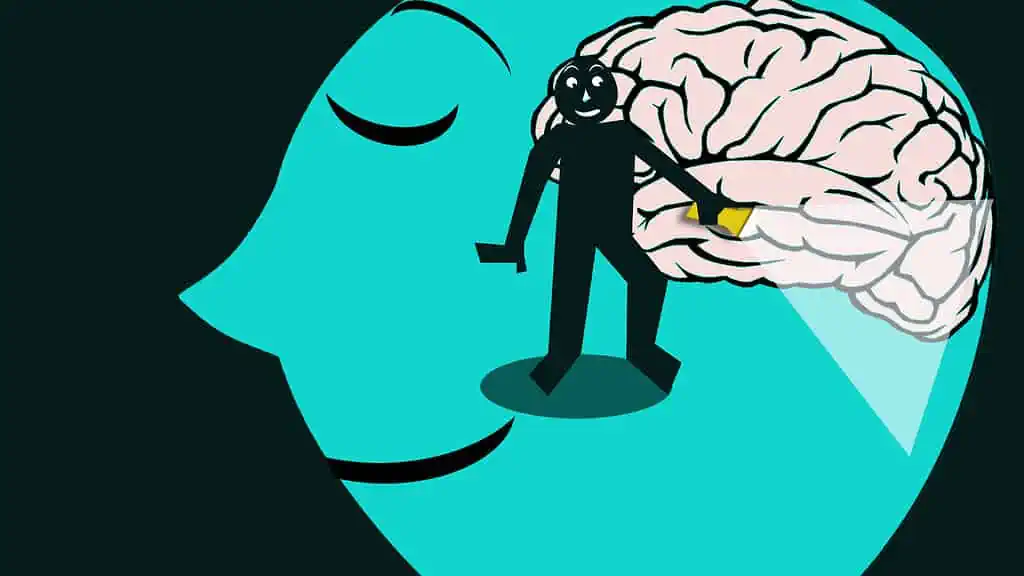
The origins of introspection can be traced back to the psychologist Wilhelm Wundt in the late 1800s. Wundt is often referred to as ‘the father of psychology.’ Historically, psychology was studied within the field of physiology, afterall, it was a study of the human body. It is because of Wundt’s work that psychology became its own field entirely. He first questioned how the human mind works, and why we are the way we are.
To answer those questions, Wundt focused on thoughts, images, and feelings that individuals have and experience. He viewed these three areas as the most important aspects of mental functioning. His work eventually led to what is currently known as cognitive psychology.
In 1879 Wundt founded the first psychological laboratory, which expanded into a university. It was here that he developed his theories on introspection. Looking inward and examining your own thoughts and emotions to try to answer the question, ‘who am I?’ is the original inquiry of the entire field of psychology. “Introspection” literally means to look inward.
The act of looking inward is reflective by nature. Introspection and self-reflection are one in the same. They require you to consciously observe your thoughts and feelings in the present moment. In this way, self-reflection and mindfulness are similar. But they differ in that with self-reflection you are assessing how you feel. The key to mindfulness is to observe without judgement. Self-reflection seeks to unearth the identity and roots of the feelings.
Integral to self-reflection is honesty. There is no reason travel through your own psyche and assess your mind, thoughts, and emotions if you are going to lie to yourself about them. It may be hard at first, but self-reflection is all about getting comfortable with your internal world. Mindfulness practices are then a tool to facilitate this comfort with yourself and your unique mental functioning.
Why Is Self-Reflection Important?
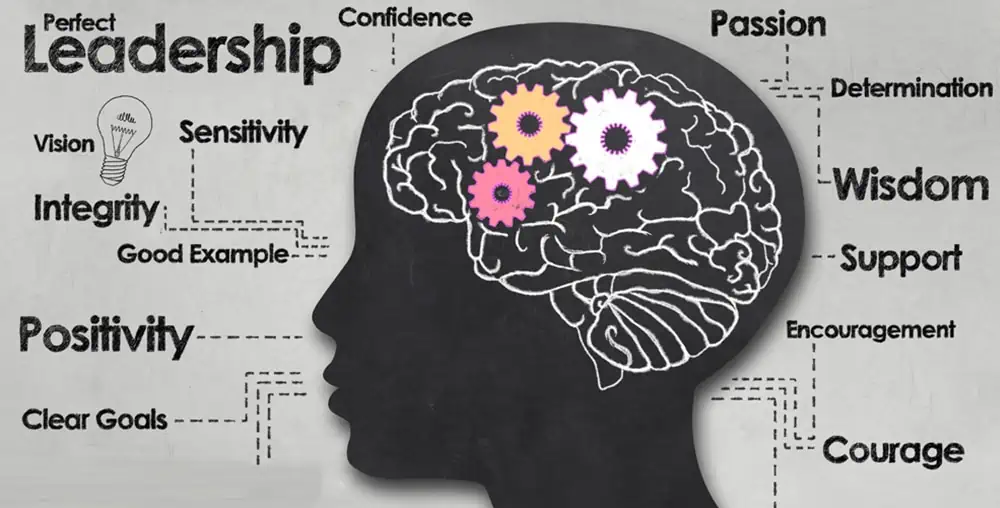
Self-reflection interrupts the negative thought cycle that most people spend all day, every day stuck in. To self-reflect is to gain insight and clarity into what you spend most of your mental energy on.
You probably think about 50,000-70,000 thoughts every single day. And research shows about 80% of those thoughts are negative, and up to 95% of them are repetitive.
Self-reflection is a way to be more mindful and intentional with all of those tens of thousands of thoughts. Unfortunately, when it goes unchecked, the mind tends to get caught in this negative thinking loop spiraling into itself over and over again.
Intentionally turning inward and becoming aware of your thoughts and feelings is the first step to self-reflect. The second step is to identify those thoughts and feelings. After identifying them, you can explore even deeper to unearth the meanings and causes.
Cognitive behavior therapy (CBT) is a highly effective research-backed therapy approach that heavily incorporates introspection and self-reflection. The main idea of CBT is that our thoughts, emotions, and behaviors are inextricably linked to one another. Each of them effects and alters the other. If you want to improve the way you feel, you first have to improve the way you think.
There are all sorts of CBT exercises to systematically guide you through a process of introspection to improve your perspective of yourself and the world. Ultimately, boosting your overall mood and behavior as well. A few of these exercises are covered at the end of this article.
Even if you don’t suffer from any mental health difficulties, self-reflection can benefit you. Introspection offers insight into your deepest desires for your life. Answering self-reflection questions builds a connection to your intuition. These answers unmask your true self, what you need out of relationships, what a fulfilling career looks like to you, how you define success, and so much more. Taking the time to get curious about who you are and what makes you tick can drastically improve your life. Let your inner voice become your guide to building a more fulfilling life.
To summarize, the benefits of self-reflection include:
- Interrupting negative thinking loops
- Becoming more mindful
- Improving overall mood
- Developing more effective behaviors
- Getting to know yourself and your wants deeper
- Helping guide you to create your dream life
Self-Reflection Questions Are Your Roadmap to The Self
If you are not intimately familiar with your own inner landscape, you walk through life lost and confused. You might not understand why you keep repeating the same relationship mistakes, why you can’t get along with your mom, or why you feel unfulfilled in your career.
Even if you are feeling quite stable and fulfilled in life, self-reflection questions can help you level up! Asking yourself these deep reflection questions can help you decide what you want your next move to be. Or they can offer journaling and meditation prompts for you to reflect on how far you have come. Introspection questions can help you develop gratitude for your journey and all of the people you have met along the way, and all the people you yourself have been.
Introspection questions help you understand yourself. That is their ultimate purpose. And if you are a seeker or psychonaut, understanding the self might just be the ultimate purpose of your life.
After all, an entire field of study was founded around the idea of introspection.
Self-reflection questions cover your:
- Mental health
- Physical health
- Spiritual health
- Personal growth
- Past experiences
- Life’s purpose
- Future vision
- Relationships- familial, romantic, platonic
- Homelife and environment
- Career and success
- Personal finances
- Hobbies and interests
- Self-growth
- Happiness and joy
How To Ask and Answer Self-Reflection Questions
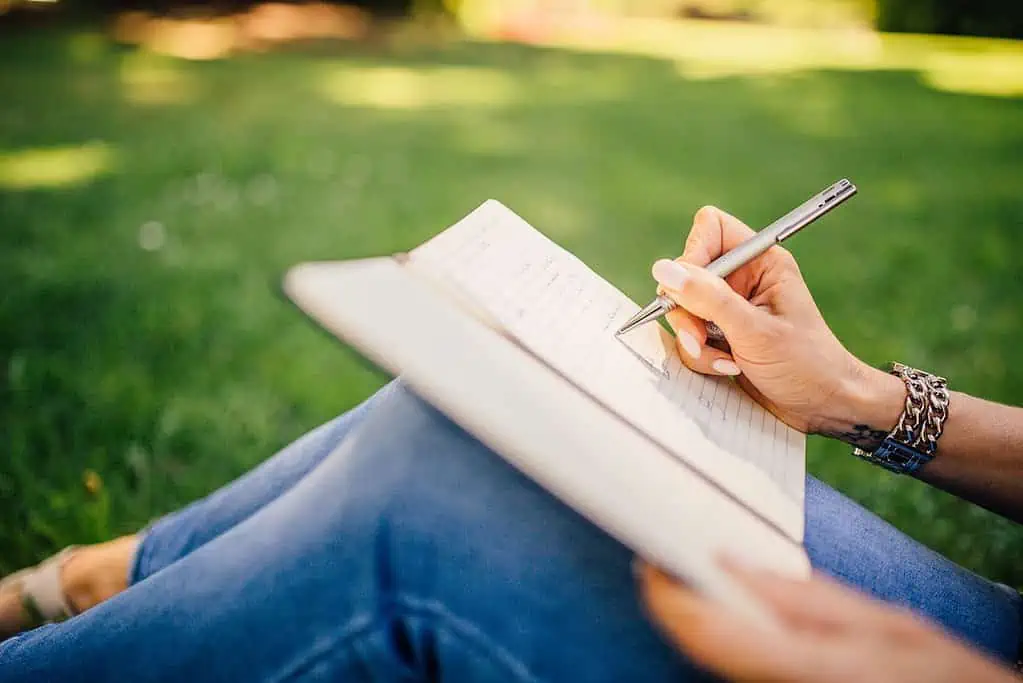
Below is a list of introspection questions you can use to get yourself started. At first, it can be difficult to know what types of questions to ask yourself. Using this list is a good jumping off point!
You can also begin to generally reflect on significant past experiences. Consider how they have shaped you, how you would handle them differently now, or in what ways you handled them effectively.
Or, reflect on significant relationships in your life. Whether they be family relationships, romantic relationships, or friendships. Consider different patterns and dynamics you find yourself in. How did these develop? Are you satisfied with them?
You can also reflect on a typical day in your life right now. How do you feel about it? What are you grateful for? What would you like to be different?
Self-reflection questions can also be about:
- Your future- envision your life in one, three, five, and ten years.
- Your emotions- reflect on the things that make you happy, sad, frustrated or annoyed.
- Your wellbeing- reflect on the things bring you joy and energy; and on the things that drain you or bring you down.
- Your success- reflect on your achievements and things you have done that you are proud of, no matter how big or small.
- Your failures- often we learn the most when things don’t go as planned. What can you take away from these difficult experiences?
- Your dreams- what is it that you really want to do and experience in this life? What if time and money were not even a consideration?
Now that you have some ideas about what to ask yourself, it’s time for the hard part! Answering self-reflection questions honestly and effectively is where the real work comes in. It’s also where the potential for transformation lies! Here are some tips for getting the most out of your self-reflection questions:
- Set aside protected time to reflect on the questions.
- Sit somewhere quiet without distractions like phones or children.
- Read through the list and start with the questions that are easiest to answer, to get your juices flowing.
- Write down your answers on paper or a journal.
- Write stream-of-consciousness style. Don’t think too hard, just put pen to paper and let it flow.
- Be honest and leave fear at the door. Allow whatever comes up to come out. Give yourself permission to be as raw and real as possible.
- If at first you are finding it too hard to write them out, try just meditating on them.
Examples of Self-Reflection Questions to Ask Yourself
Below is a list to help you get started on your self-reflection journey. If you don’t already have a journal, you might consider getting one to write down your answers in. You can always type them in a document if physically writing sounds too daunting. Last, consider discussing these questions with a loved one who you can be completely honest with.
Basic Self-Reflection Questions to Get to Know Yourself
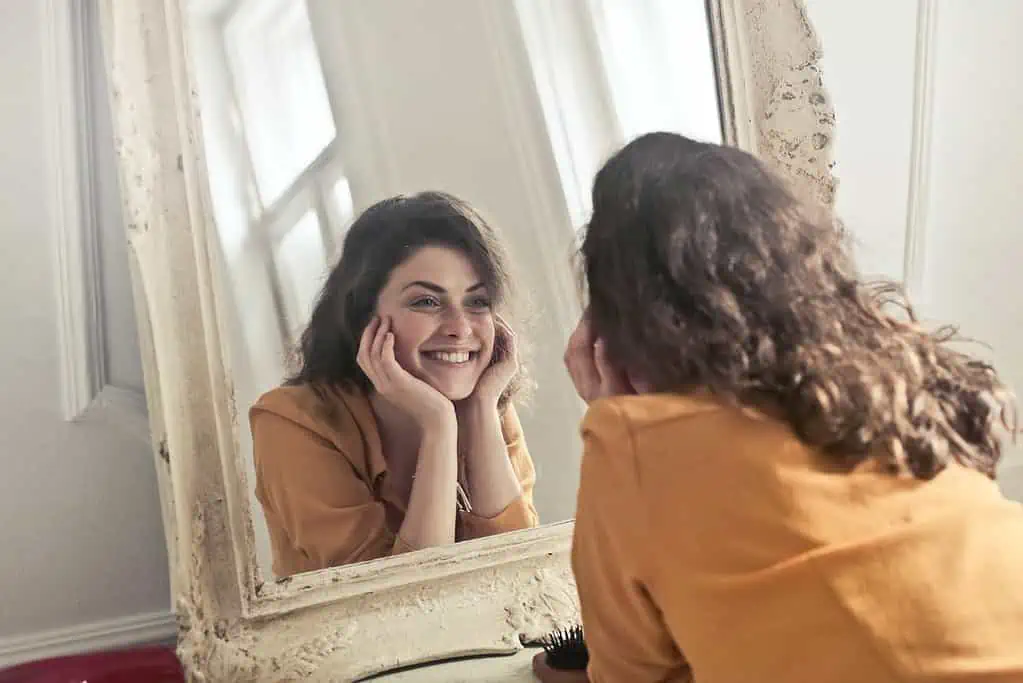
Before diving to deep, start with these more basic questions. It is important that you can answer these simple, low-level questions about yourself. They will get you comfortable with the process, and get your juices flowing for the more raw and complex questions that follow.
- What are three words my friends would use to describe me?
- What am I afraid of?
- What can I not live without?
- What is my relationship like with my family?
- What are my favorite hobbies?
- What does my ideal day look like?
- What values are the most important to me?
- What am I proud of about myself?
- What makes me feel in control?
- How do I recharge?
- What’s a controversial belief or value I have?
Self-Reflection Questions for Spiritual Health

Spirituality can mean something different for each one of us. You might be sure and steady in your spiritual beliefs within a certain doctrine. You may be unsure or questioning. Either way, these questions can help you solidify your foundation, or guide you to your beliefs. A connection to the spiritual self is important to your holistic health and overall wellbeing.
- What does ‘the divine’ mean to me?
- How do I connect to the divine?
- How do I connect to nature?
- How can I make room for more silence and stillness in my life?
- What can I do every day to nurture my spirituality?
- Who else in my life shares my spiritual beliefs?
- How can I build more spiritual community?
- What texts or books can I read to learn more about my spiritual beliefs?
- How can I tune into my intuition to make a big decision?
- How can I make intentional time for myself?
Self-Reflection Questions for Mental Health
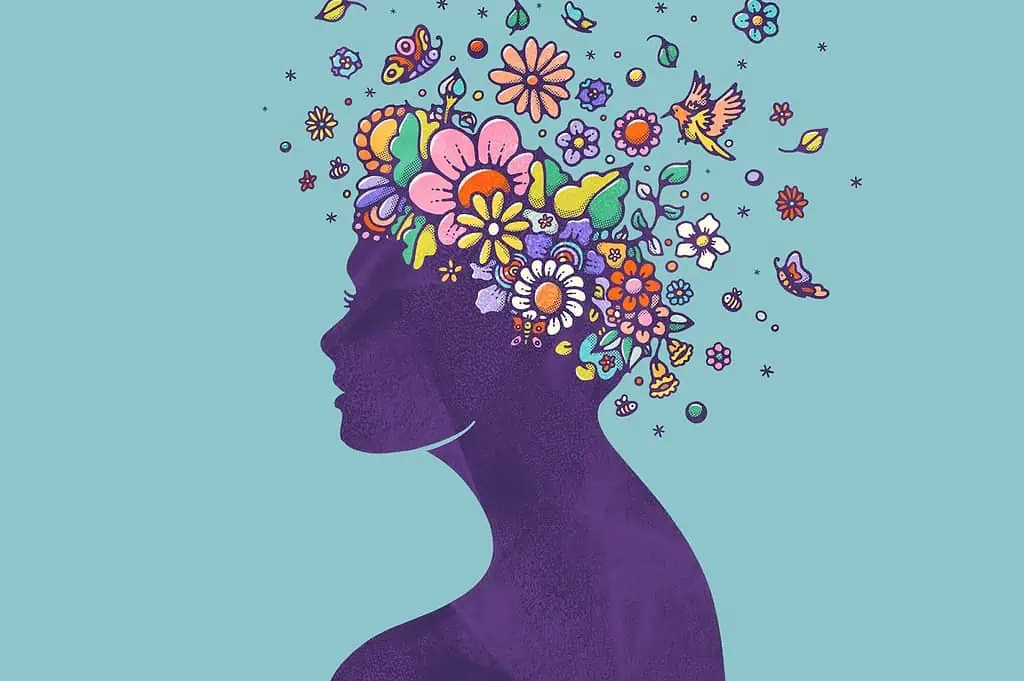
Mental health is getting more attention and becoming more apart of mainstream conversations. Thankfully mental health care is more accessible than ever. You can even see a professional therapist from the comfort of your own home. Or, if talk therapy isn’t for you, there are many alternative therapies and practitioners out there. Answering these questions will help you glean important insights about where your mental health is, and what kind of actions you can take to improve it.
- Who can I talk to about my mental health?
- What are my top 4 coping skills?
- How do I practice radical self-care?
- What can I do to reduce my stress levels?
- How can I recognize the signs of burnout?
- What can I do when I am showing signs of burnout?
- How can I set a healthy boundary today?
- How do I shift my mindset when I’m caught in a negative loop?
- How do I speak to myself in my mind?
- Would I speak to my friends the way I speak to myself in My mind?
- How do I handle negative emotions?
Self-Reflection Questions for Physical Health

Finishing up the holy trinity of our overall health and wellbeing is physical health. Inextricably linked to your spiritual and mental health, you must also intentionally take care of your body, the home of your soul and spirit. Many mental health struggles stem from not taking basic care of your physical necessities, such as a healthy diet, drinking enough water, and getting enough sleep. Our lives are busier than ever. So, don’t feel guilty if you’re falling short in this category. Instead, go through these questions and see if there is an area you can focus on improving your physical health.
- What does it feel like in my body when I’m feeling anxious?
- How can I practice mindful eating today?
- What is my sleep quality like?
- What is my bedtime routine?
- What time do I go to sleep and wake up each day?
- What is my favorite healthy, nourishing, and satisfying meal to make at home?
- How do I stay active in an enjoyable way?
- How much alcohol do I drink every day? Every week?
- How do I tend to any ongoing injuries or illness that I have?
- What is my relationship to professional medical care like?
Self-Reflection Questions for the Present

These mindfulness-based self-reflection questions will help you connect to your thoughts and feelings right in this moment. Often, self-reflection means analyzing past experiences, or exploring future desires. Mindfulness teaches us how important it is to stay grounded in the present. All of these other self-reflection exercises are meaningless if we are not able to integrate them into our present reality. These questions will help you do just that.
- How can I be more present today?
- How will I practice self-love today?
- What is one small step I can take today toward my dreams today?
- How can I celebrate myself today?
- What helps me slow down and feel more present?
- How can I practice self-acceptance today?
- In what way can I show myself kindness today?
- Why am I making my current decision?
- What are 5 beautiful things I can see right now?
- Am I holding my breath right now?
Self-Reflection Questions for the Past
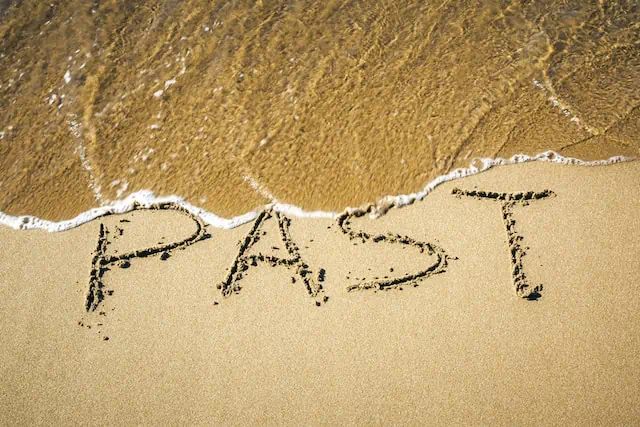
Failures and mistakes are often your most valuable life lesson. Personal growth does not happen within your comfort zone. Take the time to get to know your past self. By learning a valuable life lesson, failures and mistakes are transformed into opportunities for healing and self-acceptance. You can also practice gratitude by reflecting on how far you have traveled on your journey, and all the obstacles you overcame.
- What are some of my biggest regrets?
- What can I do to release my regrets?
- How can I learn from my past mistakes?
- How can I forgive myself for my past mistakes?
- How can I forgive others for ways they have wronged me?
- Am I still defining myself based on something that happend in the past?
- What is one place in time I wish I could go back to? How can I carry that feeling into the present?
- Who is someone from my past I can send love and warmth to from afar?
- Who is someone from my past I would like to reconnect with?
- What is an experience from my past I absolutely never want to repeat?
Self-Reflection Questions for the Future

Having a vision for the future helps guide present-moment actions and decisions. If you are having trouble setting goals or priorities, go through and answer this list of questions. Your answers will help clarify your truest path to your highest self. Your future self will thank you for taking the time to do this work and dive deep!
- What does my dream life look like?
- What are my priorities for the next 3 months?
- In just 5 words, what am I calling into my life for the next year or so?
- Where do I want to be professionally one year from now?
- Who do I still want to surrounded myself with one year from now?
- Is there anything about my life that I want to look different in one year?
- What can I do today that I wasn’t capable of one year ago? How do I want that to progress in the next year?
- What are some small steps that will help me achieve my long-term goals?
- How can I make the biggest impact while still caring for myself first?
Self-Reflection Questions for Relationships

Relationships are often our biggest causes of joy and grief in life. Taking a moment to reflect on the relationships in your life- familial, romantic, and platonic- can illuminate a lot about how you view yourself and what you think you deserve. The people you surround yourself with are a reflection of you. They will influence what you think and how you spend your time. So make sure they are in alignment to the divine within you.
- How do I best show love?
- How do I need to receive love?
- Who in my life am I grateful for?
- When was the last time I did something special for someone I love?
- In what ways can I practice joy for others when they accomplish something great?
- In what ways can I be intentional about my time with others?
- How do I view my relationship with others?
- What traits do I judge in others?
- What do I value most in friendships?
- What kind of praise from others means the most to me?
- What boundaries do I need to set?
- What is the trait I most desire in a potential partner? Friend?
- Who do I compare myself to?
Self-Reflection Questions for Career

A fulfilling career is elusive for a lot of people. Most of us find ourselves stuck in the 9-5 grind. Maybe, you need to change your career entirely. Or, maybe, you just need a mindset shift. Your career doesn’t have to define you. It is perfectly OK if your career is simply a practical way to survive in this society. But do take the time to question how your career is affecting your overall well being. By answering these self-reflection questions, you can find out what types of shifts and changes might be necessary for you.
- What am I passionate about?
- What is my personal definition of success?
- What activities get me in a flow state, where I lose track of time?
- What would I be confident teaching to a group of people?
- What is something I do differently from most people?
- If I could choose any message or belief to be able to instill in a large quantity of people, what would it be?
- How much money do I really need to make to live a comfortable lifestyle?
- How do I want to be remembered?
Self-Reflection Questions for Personal Growth

As humans, we are always evolving. The purpose of life is not to stay the same but rather to expand and grow. Change usually feels scary but that shouldn’t stop you from continuing to evolve into the person you were always meant to be. You may have to shed old personas or old attachments to step into your higher self. Doing the work of self-growth and self-reflection will always be worth it!
- What am I afraid of?
- When was the last time I stepped out of my comfort zone?
- How can I encourage myself when I try something new?
- In what ways do I wish my life was different right now?
- How can I advocate for myself today?
- Is there anything I feel like I am missing in my life?
- Is there anything I am ready to release in my life?
- What would I do differently if I wasn’t afraid of judgment from others?
- What gets me excited about life?
- What are some hard life lessons I have learned?
- What do I wish I had started 5 years ago?
Other Tools for Self-Reflection
Cognitive Behavioral Therapy (CBT)
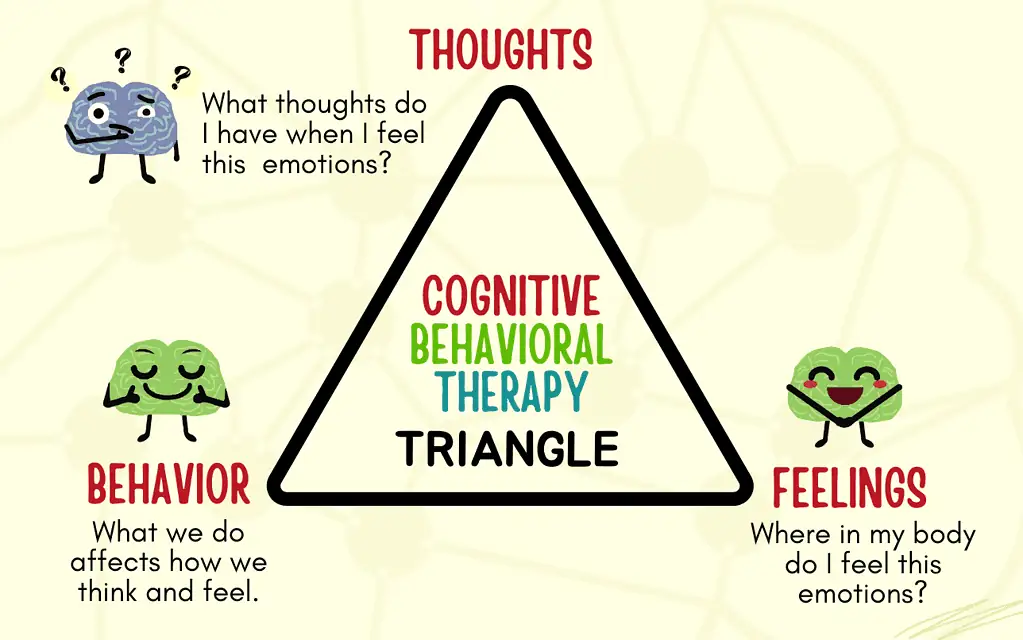
I briefly discussed CBT in this article. The simplest goal of CBT is to develop self-awareness of your thoughts. One of the easiest ways to do this is to first identify and challenge your automatic thoughts.
Automatic thoughts arise spontaneously, they are not the result of reflection or motivated thought. They often coexist with a more intentional stream of thought. They are so fleeting that they go by unnoticed. However, they are associated with emotion, and that emotion is more easily noticed than the thought. Automatic thoughts are influenced and rooted in our views of ourselves, our environment, and the larger world around us. But these perspectives are often subconscious.
Automatic thoughts can be harmful because they are unconscious, go unchecked, and heavily impact your mood and emotions- which then impacts behavior. The subconscious yet significant impact they have on overall mood and functioning is exactly why it is important to identify and challenge automatic thoughts.
To begin building awareness of your automatic thoughts, write them down. You can write them in a thought tracker table, or simply jot them in a notebook or on your your phone. Next to the thought, write down the situation you were in when you had the thought, and the emotion you felt because of the thought. Then, write down a more logical thought to replace the automatic thought.
For example:
Situation: Your friend hasn’t called you back in a couple of days.
Automatic thought: They don’t like me anymore.
Emotion: Sad, abandoned.
More logical thought: They are really busy and they’ll get back to me when they can.
It will take a long time to actually be able to replace your automatic thoughts with the more logical thoughts. But the more you practice identifying and challening them, the easier it will become. Here is a list of questions you can also ask yourself to evaluate and challenge your automatic thoughts:
- What is the evidence that the thought is true?
- What is the evidence that the thought is not true or not completely true?
- Is there an alternative explanation or another way to look at this?
- What is the worst that could happen? What could I do if the worst happened?
- What is the best that could happen?
- What is the most realistic outcome?
- What will happen if I keep telling myself the same thought?
- What could happen if I change my thinking?
- What would I tell a friend to do if they were in the same situation?
- What should I do now?
These questions and activities are taken from Positive Psychology’s free resources on CBT.
Self Awareness Activity
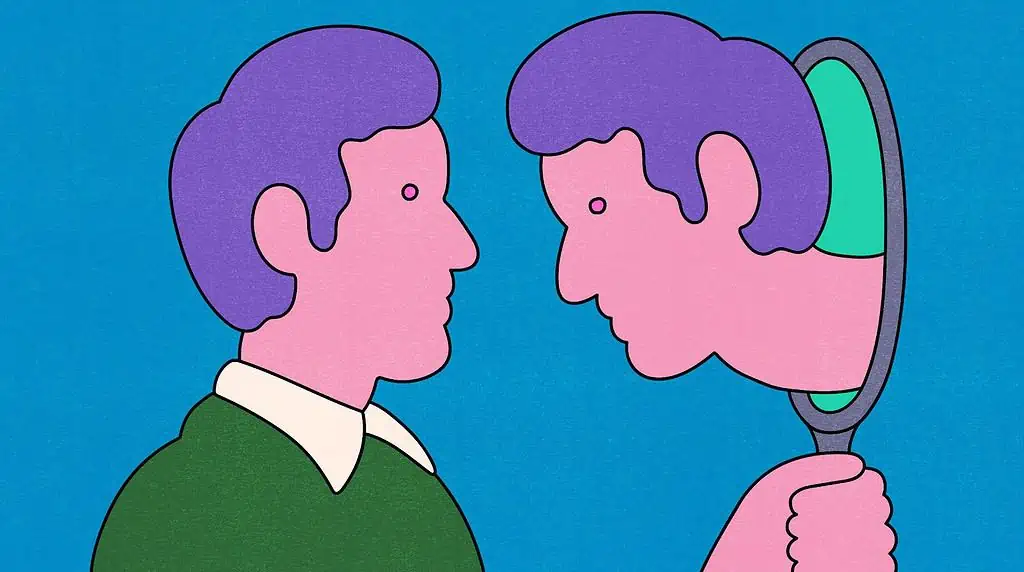
Destiny’s Odyssey is an organization that is all about empowering people to reach their utmost potential. They work to instill the skills, beliefs, and knowledge necessary for self-awareness and development. The following activity is their Self-Awareness Worksheet. It is an all encompassing activity that addresses talents, qualities,values, perception, and self-reflection.
Complete the questions below to continue your self-reflection journey.
Talents
- What are my greatest talents and skills?
- Which of my talents and skills give me the greatest sense of satisfaction?
- What talents and skills do I admire most in others?
- What talents or skills do I want to develop?
Traits and Qualities
- What are my 5 greatest strengths?
- What are my two greatest weaknesses?
- What are my best qualities and characteristics?
- What qualities do I wish I had?
- What qualities do I admire most in others?
- What behaviors, traits, or qualities do I want others to admire in me?
Values
- What are ten things that are really important to me?
- What are the three most important things to me?
- Do I spend enough time on the things I value most?
Perception
- How is the “public me” different from the “private me”?
- What makes it hard to be myself with others?
- How am I trying to please others with the way I live my life?
- What do I want people to think and say about me?
- What do I least want people to think and say about me?
- Who are the people who allow me to be fully myself?
- What activities allow me to feel fully myself?
- How do I want people to remember me when I’m gone?
Accomplishments
- What three things am I most proud of in my life to date?
- What do I hope to achieve in life?
- If I were to win an award, what would I want that award to represent?
- If I could accomplish only one thing before I died, what would it be?
- What do I believe I am here to contribute to the world?
Reflection
- What are three things I am?
- What are three things I am not?
- What is something that represents me (e.g., song, animal, flower, poem, symbol, jewelry, etc.)? Why?
- What do I like best about myself?
- What do I like least about myself?
- Who are three people I admire? What do I admire about them?
- What are five things I like to do?
- What matters to me most in life?
- What makes me happy?
- What are three things I believe I need in order to have a great life? Why are these things important to me?
- What do I stand for?
- How do I want to impact the lives of others?
Finish the Sentence
- I do my best when . . .
- I struggle when . . .
- I am comfortable when . . .
- I feel stress when . . .
- I am courageous when . . .
- One of the most important things I learned was . . .
- I missed a great opportunity when . . .
- One of my favorite memories is . . .
- My toughest decisions involve . . .
- Being myself is hard because . . .
- I can be myself when . . .
- I wish I were more . . .
- I wish I could . . .
- I wish I would regularly . . .
- I wish I had . . .
- I wish I knew . . .
- I wish I felt . . .
- I wish I saw . . .
- I wish I thought . . .
- Life should be about . . .
- I am going to make my life about . . .
Guided Visualization
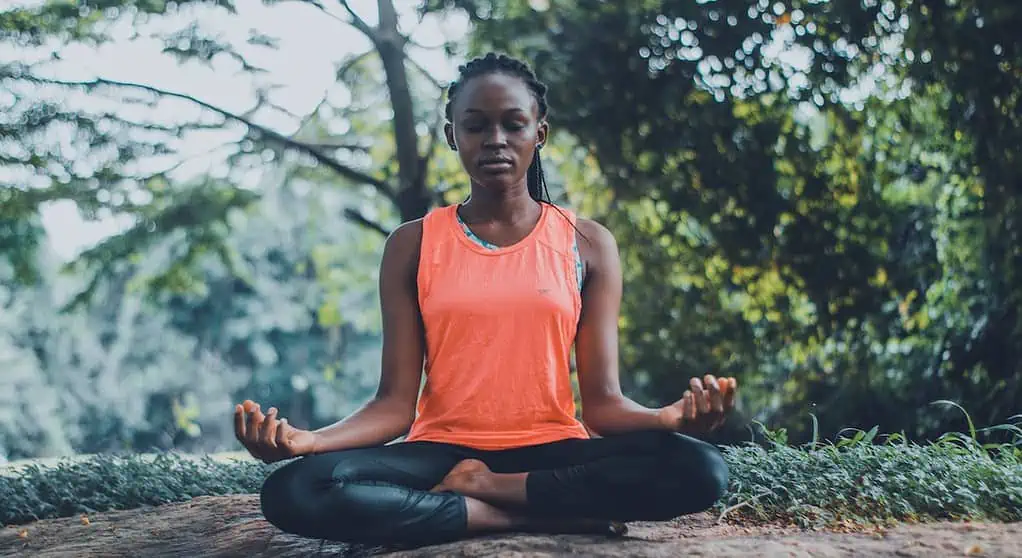
Often, we ask ourselves these introspective questions to become more aware of our deepest desires and highest path in life. But it is difficult for a lot of people to spontaneously answer these questions. Or, it is difficult to thread together how the answers connect with our desires.
Guided visualization exercises are a way to tap into your intuition. Whether it’s about career or relationship, guided visualizations can help you make decisions that are informed by your highest self, instead of the “shoulds” and expectations of others.
This guided visualization will bring you through an average day in your life- one year from now. It is your ideal day. So feel free to dream BIG, and don’t assume what is or isn’t possible to change in one year. We often overestimate what can be done in a day, and underestimate what can be done in a year.
Usually, you would listen to a guided visualization in a meditative position, either sitting or lying down with your eyes closed. Today, you can read through this guide, taking pauses whenever you feel led to close your eyes and visualize the prompt. Or, read it all the way through once and then sit back and replay everything behind your eyelids.
After you make it though the meditation, answer each of the reflection questions to get the most out of the exercise.
Let’s begin.
It is one year to the date from today. You are waking up in your bed refreshed and rested. Notice what the bed and room look like. You start thinking about your day, what are you looking forward to? What are you anxious about?
You stretch out and turn over, is there anyone there with you? If so, who? What do they look like? How does it feel when you look at them? How do they smell? How do you interact, first thing in the morning?
You go through your daily morning routine readying yourself for your day. Go through it step by step in your head. How do you take care of yourself? Are there others around you that you care for? How do you prepare for the day ahead?
Now you are onto the bulk of your day. Notice your surroundings. Are you in an office? At home? Outside? Are you working on a computer or with people?
What does your work day look like? Who do you interact with? What is your work flow? What tasks do you complete throughout the day? Where do you go? How does it feel in your heart and in your stomach while you are working? Where is your mind, your awareness?
As you wrap up your work day, you transition into the remainder of your day. How do you spend it? Who are you with? What do your surroundings look like? What type of tasks and responsibilities remain? Do you exercise? Work on house projects? Cook dinner? See friends? Engage in other hobbies?
Now it is time get ready for bed. What is your nighttime routine? Who else is with you?
As you get into bed, you are contendly tired and deeply satisfied with your day. With your life. The thought of waking up and doing it all over again tomorrows fills you with sense of joy and gratitude. You think back to one year ago, and you are so proud of how far you’ve come, how much you’ve grown, and what you have built for yourself. And as your eyes close and you easily drift off to sleep, a small smile remains on your lips.
Guided Visualization Reflection
Take a moment to jot down everything you can remember from the visualization. Don’t think about it too hard, just start writing stream-of-consciousness. Give yourself about 3 minutes to write, and stop at the end of 3 minutes.
Use the following questions to guide your reflection:
- What were some things that surprised you about your ideal day?
- What wasn’t in your visualization that is in your current life?
- What was in your visualization that isn’t in your current life?
- Overall, what were the top 3 feelings you carried with you throughout your ideal day?
- Who was included in your visualization?
Based on your answers to these questions, choose three goals or priorities you can intentionally work towards for the next three months. These goals or priorities can be anything that will put you one step (or three steps) closer to your ideal life you just visualized.
Now, break each of the three priorities down into smaller steps that can be tracked and easily managed on a weekly or monthly basis. Make a practical plan guiding you on how you can achieve each goal or priority in the three month window you set for yourself.
This guided visualization and planning technique is based on the coaching work done by Vere Lester, a life coach and yoga teacher based in New Orleans.
Tarot Cards
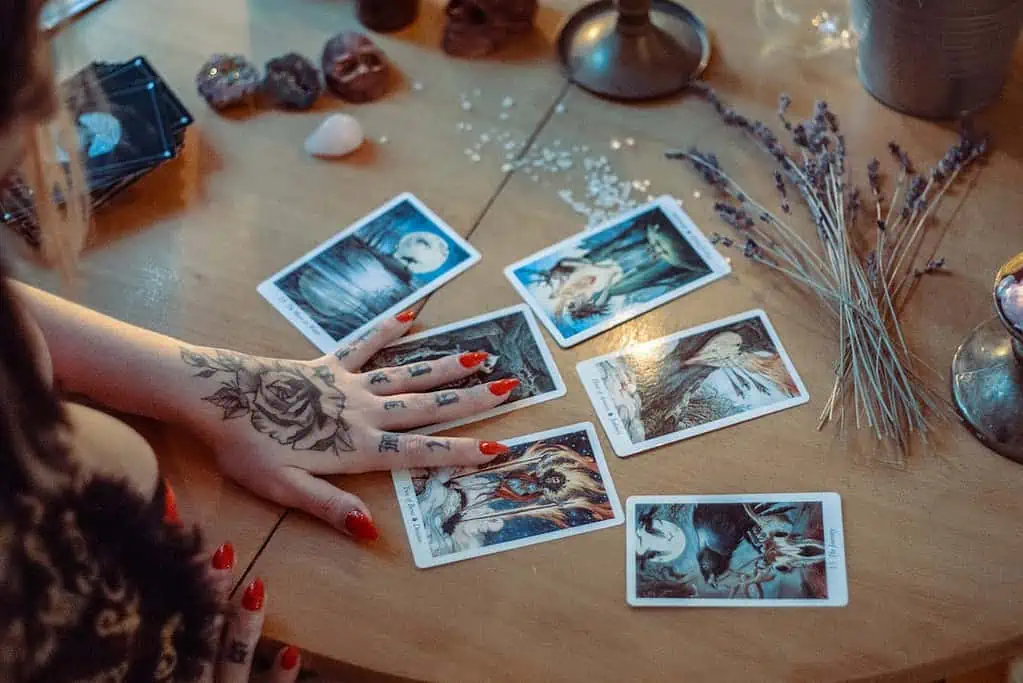
Tarot cards are an ancient tool to help you tap into your intuition and the divine wisdom of the universe. The practice originated in 14th-century Europe and is often confused with a type of fortune-telling. More accurately, tarot cards are like a mirror that allows you to look at your present life with a new perspective.
The cards, their explanations, and your interpretations of them help you tap into your hidden thoughts, feelings, and truths. By unearthing these hidden parts of yourself, you are more well-equipped to make decisions in your life related to career, love, family, friendships, health, environment, and more.
Using tarot cards is fun and easy! They seem intimidating at first, but once you get to know them, you’ll be wanting to pull cards for insight into everything from daily happenings to major decisions.
To better understand the practice, here is a brief introduction to the deck itself. Each tarot deck is made up of 78 cards. Twenty-two cards are the major arcana (cards like the emperor and empress, death, the devil, strength, etc.), and 56 cards are the minor arcana (made up of four different “suits”). Each suit represents a different area of life. The pentacles pertain to things in the material and physical world such as money and career. Wands is more spiritual and often denotes movement, growth, and new beginnings. Cups is connected to our emotions, relationships, and matters of the soul. And finally, swords can reveal some of our greatest challenges, it is associated with conflict and strife.
Now that you know a bit about the cards themselves, you’re probably wondering how to use them. First, you need to set an intention for your card pulls. What questions are you seeking answers to? What guidance do you need?
When your intention becomes clear, shuffle your cards. You can shuffle them in any number of ways just like you would a normal deck of cards. While you are shuffling, think about the question or guidance you are seeking from the cards. When you are ready, you will pull a single card or a spread of cards.
There are multiple methods to pulling a card:
- Cut the deck and pull the top card
- hold the cards with your right hand and shuffle them into your left hand until only one card remains in your right hand
- Fan the cards out in front of you, close your eyes and hover your hand over the fan, stopping when you feel warmth and picking that card
You may want to add any cards to your spread that literally jump out at you while you are shuffling!
Single card pulls are appropriate for:
- Daily pull
- Journaling prompt
- Seeking guidance on a specific situation
- Seeking clarity on a person in your life
- Possible outcome of a situation
If you want to explore even further, you may want to work with a Tarot spread. The order in which the cards are pulled is important in spreads. Be sure to place each card in its correct spot. Popular spreads include:
- Celtic cross
- Past, present, future,
- Mind, body, spirit
- Situation, obstacle, solution
Now that you’ve pulled your cards and made your spreads, how do you read and interpret them?
This is the fun part, and where the self-reflection process comes in! Hopefully, your tarot deck came with a guidebook. As a beginner, a guidebook specific to your deck is the easiest way to interpret your cards. If not though, no worries! You can refer to any tarot reference book or website to find out the meaning of your cards. Each card is an archetype of the human experience with a broad traditional meaning. But they can each also take on a very personal meaning to you. Often, the traditional meanings act as a catalyst to help you reflect on your own life, or expand on the definition in relation to the situation you were seeking guidance on.
You can also make your own observations about each card before looking up their classical meanings. Consider the imagery and position of each card. Reflect, discuss, or write down how they make you feel, and what they bring up for you. Pull from your knowledge about archetypes and anthropology, and mix in your own personal experiences. Then, after looking up the classical meaning, you can blend it all together for a reading that is completely personal to you!
Pay special attention to patterns and repetition. For example, if you notice a lot of yellow in your cards, you may have some work to do with your solar plexus chakra and self-confidence. If the number seven is coming up a lot, there may be some stressors or challenges in your life that you need to overcome before you can reach your next goal or milestone.
Astrology
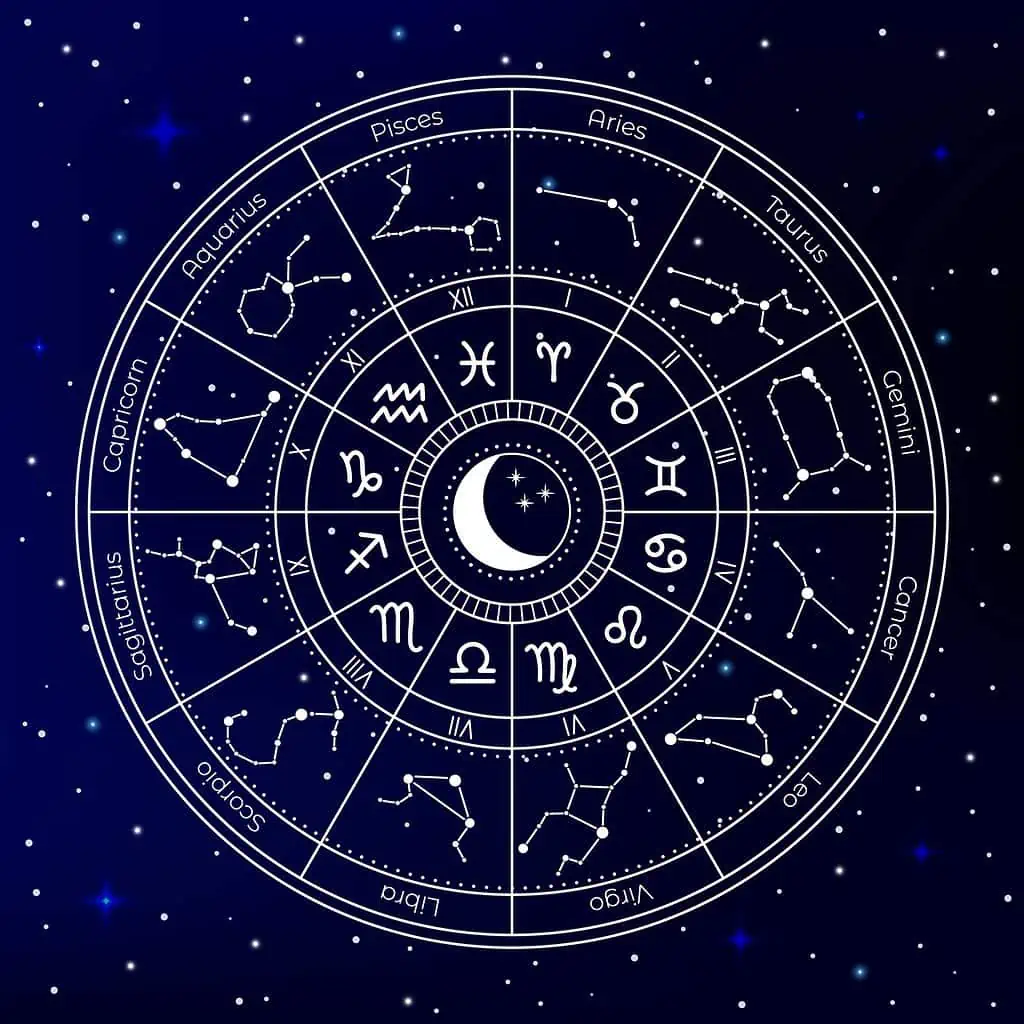
In my mind, astrology and tarot are quite similar. I think they are both wonderful tools for introspection and self-reflection. But they are also both misunderstood as fortune-telling. This misunderstanding leads a lot of people to dismiss them as meaningless new-age pseudo-magic.
Astrology is about so much more than those cheesy one-paragraph daily horoscopes in major magazines. Just like tarot, astrology can help guide you to your intuition, the inner voice of your authentic self. All it takes is a little background knowledge, genuine curiosity, eagerness to learn, and openness to try something new!
My absolute favorite resource for learning about myself through astrology is the Chani app. I’ve also linked her book below in the best books for introspection and self-reflection section. If you’re not already familiar with your birth chart, I encourage you to head over to the app or website right now to find out! You will need your birth date, time, and specific location to receive your full birth chart.
We’re all pretty familiar with our sun sign. If you only know one of your signs, it’s your sun sign. If you’re like me, you’ve never really associated with it. After I read my entire birth chart I felt more connected to my sun sign. It made so much more sense in relation to all of my other aspects. Considering your chart in its entirety is how you can get the most self-reflection out of astrology.
Let’s review what each planet means within your chart:
- Sun: Your sun sign represents your identity and where you shine.
- Moon: Your moon sign represents your body and emotions, feelings, and desires.
- Rising (ascendant): Your rising sign is your motivation for life.
- Mercury placement: Represents how and where you communicate.
- Venus placement: Represents how and where you connect.
- Mars placement: Represents how and where you take action.
- Jupiter placement: Represents how and where you create abundance.
- Saturn placement: Represents how and where you create boundaries.
- Uranus placement: Represents how and where you innovate and dispute.
- Neptune placement: Represents how and where you use your imagination.
- Pluto placement: Represents how and where you hold secret power.
By reading and reflecting on your birth chart, you can gain powerful insight into each of these areas in your life. Some may resonate more than others, and that’s ok. One of the great things about astrology is that you can take what makes sense to you and leave the rest.
Some parts of your chart may help explain confusing patterns or tendencies you have. Some may challenge you to step into your power and gifts. And some may provide a bit of self-compassion for the difficulties and struggles you have. Astrology is all about self-exploration, self-reflection, and self-acceptance.
Your birth chart can help you get to know yourself on a big picture, holistic level. Getting to know the current sky and how that effects you can also help you understand your present circumstances. Your moods, decision-making process, big wins, and difficult failures. Again, it is not fortune telling. It is simply becoming aware of what is going on in the universe, connecting it to your inner landscape, and reflecting on how your thoughts, feelings, and behaviors are affected.
This section is a very brief introduction and really doesn’t even scratch the surface of the self-reflection potential astrology holds.
Best Books On Introspection and Self-Reflection
You Were Born for This: Astrology for Radical Self-Acceptance– Chani Nicholas
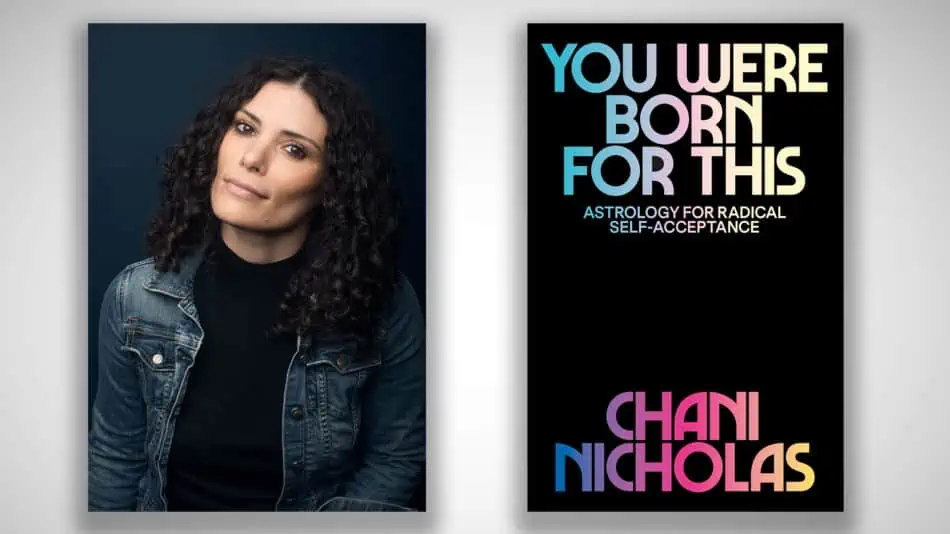
This is my personal favorite book for self-reflection. Nicholas takes you on a journey through your birth chart in an organized and accessible way so that even the most novice of astrology newbies can understand all of the interconnected elements of their chart.
Her tone is both playful and empowering. And she truly means it when she says ‘radical self-acceptance.’ To Nicholas, astrology isn’t about passively accepting your fate based on what the stars say. Instead, it is all about using this information to step into your power, hone your natural gifts and skills, and accept and forgive your shadows. All of this is to ultimately guide you to walk with your highest self in a place where you know exactly who you are and have no desire to pretend to be anything but them.
You Were Born for This teaches you how to harness the power of the stars to learn more about yourself and your place in the universe.
Alchemy 365: A Self-Awareness Workbook – Brenda Lightfeather Marroy
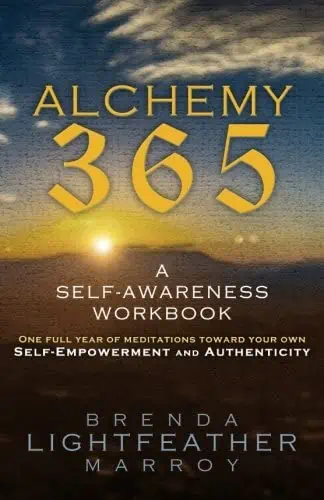
This interactive workbook guides you on a year long journey in which you learn to become an alchemist in your own life. Instead of turning elements into gold, you learn how to turn an unsatisfactory life into a fulfilling life of your deepest desire.
Marroy teaches you to use the ‘elements’ of presence, discovery of self, possibility, passion, stillness and silence, relationships, and peace and purpose to transform your life.
The workbook is methodical. Each month focuses on one of these elements. Each day presents a quote, reading, and activity to work with. This process is meant to bring your authentic self and inner voice into the spotlight to help you deepen your understanding of yourself and life. Ultimately, the hope and goal of the workbook is to lead you to a full and purposeful life.
The Power of Now – Eckhart Tolle
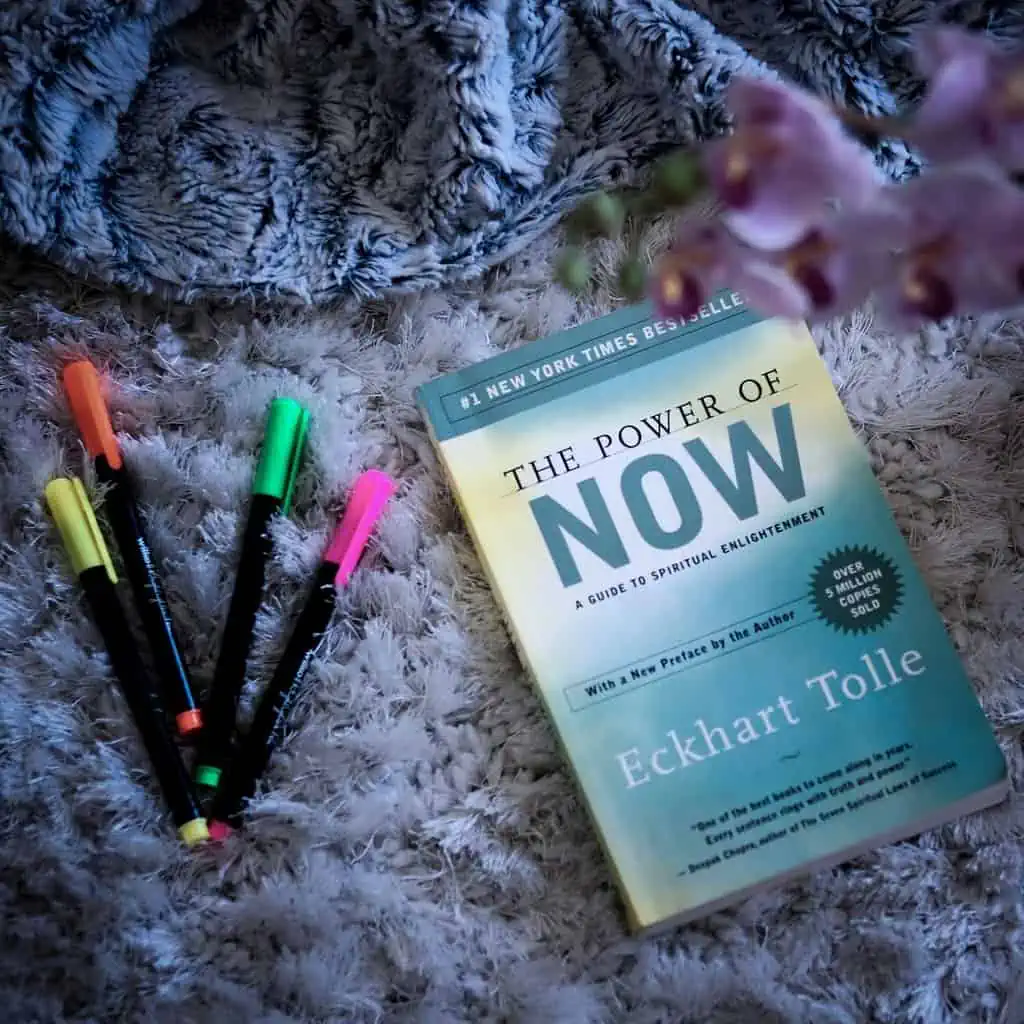
On the surface, this book isn’t exactly about self-reflection. But Tolle certainly guides you deep into the self to shed the ego and step into the glory of the ever-present now. Deceptively simple, Tolle uses a question-and-answer format and easily accessible language to explain his transformation ideas to readers. Caution: this book will change the way you perceive the world around you, and make you question the way you show up in your life.
The Four Agreements – Miguel Ruiz
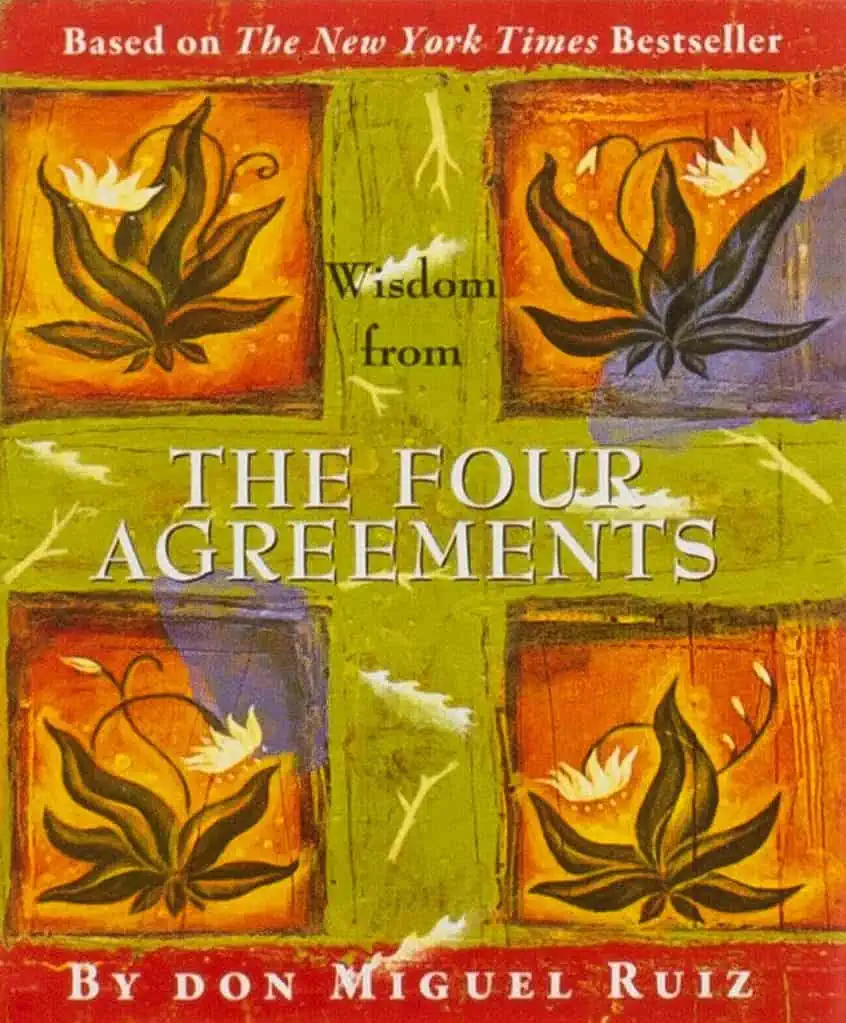
Right from page one, Ruiz challenges you to consider why you live the life you live, and make the decisions you make. He shines a light on the ingrained and conditioned agreements that you made, and that everyone in modern society makes- without ever being conscious of them. These societal agreements are self-limiting and leave your potential for fulfillment and happiness in shackles. The simple awareness of these agreements is the first step to breaking free of them. To break free of them is to radically transform your life into one of freedom, joy, and love. He outlines new agreements to make with yourself, and argues a case as to why these will transform your life. His four agreements are: Be Impeccable With Your Word, Don’t Take Anything Personally, Don’t Make Assumptions, and Always Do Your Best.
FAQs
What is an introspective mindset?
To have an introspective mindset, you must regularly look inward to explore and try to understand your thoughts, feelings, beliefs, and actions.
What personality type is introspective?
INFPs tend to be the most introspective personality type.
What are some introspective practices?
Meditation, journaling, mindfulness, and self-monitoring.


